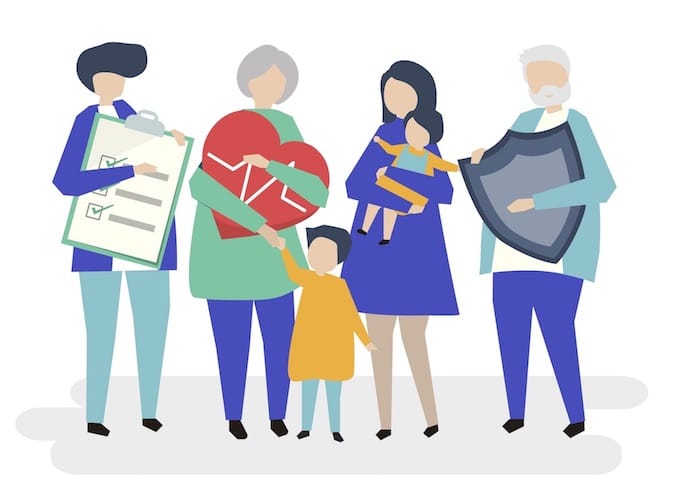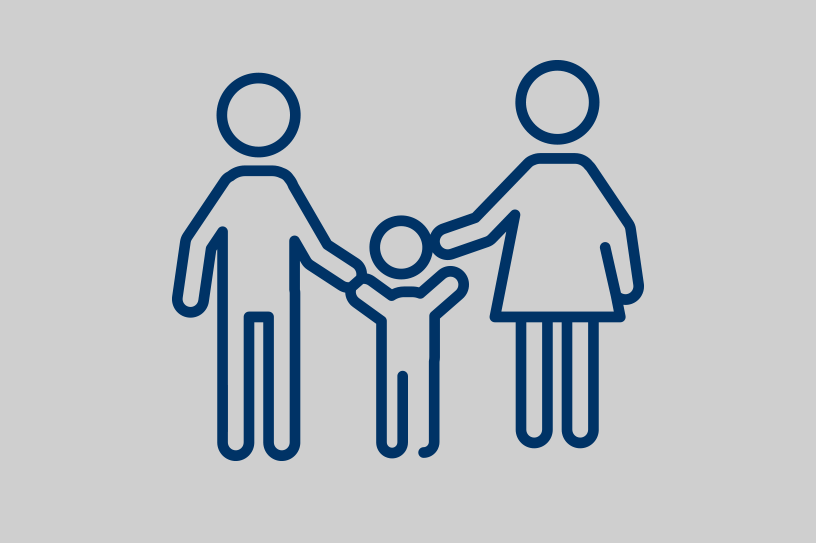What is guardianship according to Vietnam Law?

Guardianship is an important legal issue in civil law in Vietnam. Let’s find out with Lawyer X through the following situation: “Dear Lawyer! I want to ask what does guardianship mean under Vietnam Law? Who shall be considered as wards by Vietnam Law? Thanks for answering me!”
Legal grounds
- 2015 Vietnam Civil Code
What is guardianship?
- Guardianship means an individual or organization (hereinafter referred collectively to as guardian) is required by law or appointed to take care of and protect legitimate rights and interests of a minor or a legally incapacitated person or a person with limited cognition and behavior control (hereinafter referred to as a ward).
- When a person with limited cognition and behavior control is capable of expressing his/her will anytime when he/she requests the guardianship, his/her consent is required.
- The guardianship must be registered at a competent authority as prescribed in law on civil status affairs.
Natural guardians must fulfill their obligations regardless of their registration of guardianship.
Who are wards?
– Wards include:
- Minors who have lost their mothers and fathers, or whose parents are unidentifiable;
- Minors whose parents are both incapacitated persons; parents have limited cognition or behavior control; parents have limited capacity of exercise; parents have their parental rights restricted by a court; and parents do not have the means to care for or educate such minor and the parents request the minor to be a ward;
- Incapacitated persons;
- Persons with limited cognition or behavior control.
– A person may only be a ward of one guardian, except where the guardians are parents in charge of one child or grandparents in charge of one grandchild.
Who are guardians?
– Each natural person or juridical person who meets all requirements prescribed in Civil Code is entitled to be a guardian.
– If a person with full legal capacity chooses a guardian for him/her, such guardian shall be selected if the person needs the guardianship with the consent of the ward. The selection of guardian must be made in writing and notarized or certified.
– Each natural or juridical person may be a guardian of multiple persons.
Requirements for natural persons to be guardians
Each natural person who meets all of the following requirements may act as a guardian:
– Having full legal capacity;
– Having good ethics and necessary means to exercise rights and fulfill obligations of a guardian;
– Not being a person facing a criminal prosecution or a person who has been convicted but his/her criminal record has been not expunged for a deliberate crime of violation of life, health, honor, dignity or property of another person;
– Not being a person having parental rights to minor child restricted by a court.
Requirements for juridical persons to be guardians
Each juridical person who meets all of the following requirements may act as a guardian:
– Having civil legal personality in conformity with the guardianship;
– Having necessary means to exercise rights and fulfill obligations of a guardian.

Regulations on supervision of guardianship
– The relatives of a ward shall have the responsibility to appoint a representative to supervise the guardianship in among the relatives or appoint another natural or juridical person to act as a guardianship supervisor.
The appointment of guardianship supervisor must have the consent of such person.
If the supervision relates to management of property of the ward, the supervisor must register it at the People’s Committee of commune where the ward resides.
Relatives of a ward means his/her spouse, parents and children; if there is no such person, relatives of the ward means his/her grandparents and biological siblings; if there is also no such person, relatives of the ward means his/her biological uncles and aunts.
– If there is no relative of a ward or the relatives fails to appoint a guardianship supervisor as prescribed in Clause 1 of this Article, the People’s Committees of commune where the guardian resides shall appoint a natural or juridical person to supervise the guardianship. If there is a dispute over the appointment of guardianship supervisor, it shall be subject to a court’s decision.
– Each supervisor being natural person must have full legal capacity, each supervisor being juridical person must have legal personality in conformity with the supervision; the supervisor must have necessary means to conduct the supervision.
– Each guardianship supervisor has the following rights and obligations:
- Monitory and inspect the guardian in the guardianship;
- Examine and offer opinions in writing in terms of establishment and performance of civil transactions prescribed in Article 59 of Civil Code.
- Request a regulatory agency in charge of guardianship to change or terminate the guardianship or supervision of guardianship.
Natural guardians of minors
A natural guardian of a minor prescribed in Points a and b Clause 1 Article 47 of Civil Code shall be determined as follows:
- The eldest brother or sister shall be the guardian of the ward; if the eldest brother or sister fails to satisfy all requirements for acting as a guardian, the next eldest brother or sister shall be the guardian, unless otherwise agreed that another biological brother or sister shall be the guardian;
- If there is no guardian prescribed in Clause 1 of this Article, the paternal grandfather, grandmother or the maternal grandfather, grandmother shall be the guardian; or those persons shall agree to appoint a person or some persons to be guardian(s);
- If there is no guardian prescribed in Clause 1 and Clause 2 of Article 52, a biological uncle or aunt of the ward shall be the guardian.
Natural guardians of incapacitated persons
If there is no guardian prescribed in Clause 2 Article 48 of Civil Code, the natural guardian of a legally incapacitated person shall be determined as follows:
– If a wife is a legally incapacitated person, her husband shall be the guardian; if a husband is a legally incapacitated person, her wife shall be the guardian;
– If both parents are incapacitated persons or either of them is a legally incapacitated person and the other does not fully meet requirements to be a guardian, the eldest child shall be the guardian; if the eldest child does not fully meet the requirements to be a guardian, the next eldest child shall be the guardian;
– If an adult being a legally incapacitated person has no spouse or child or such person has spouse or children but they do not fully meet the requirements to be a guardian, his/her father and/or mother shall be the guardian.
Appointment of guardians
– If a minor or a legally incapacitated person has no guardian as prescribed in Article 52 and 53 of Civil Code, the People’s Committee of commune where such person resides must appoint a guardian for the ward.
If there is a dispute between guardians prescribed in Article 52 and Article 53 of Civil Code in terms of guardians or appointment of guardians, a court shall appoint the guardian.
The expectation of a minor aged 6 years or older in terms of his/her guardian must be considered.
– The appointment of a guardian must have the consent of such person.
– The appointment of a guardian must be made in writing, specifying the reason for appointing the guardian, the specific rights and obligations of the guardian and the status of the ward’s property.
– Apart from the cases prescribed in Clause 2 Article 48 of Civil Code, the guardian of a person with limited cognition and behavior control shall be appointed among the guardians prescribed in Article 53 of Civil Code by a court. If there is no such person, the court shall appoint another natural or juridical person to be a guardian.
Obligations of guardians with regard to wards under fifteen years of age
- Take care of and educate the ward.
- Represent the ward in civil transactions, except where it is provided for by law that wards under fifteen years of age can enter in and perform civil transactions by themselves.
- Manage the property of the ward.
- Protect legitimate rights and interests of the ward.
Obligations of guardians with regard to wards from fifteen to eighteen years of age
- Represent the ward in civil transactions, except where it is provided for by law that wards from fifteen to eighteen years of age can enter in and perform civil transactions by themselves.
- Manage the property of the ward, unless otherwise prescribed by law.
- Protect legitimate rights and interests of the ward.
Obligations of guardians with regard to incapacitated persons or person with limited cognition and behavior control
– The guardian of a legally incapacitated person shall have the following obligations:
- Take care of and ensure the treatment of illness of the ward;
- Represent the ward in civil transactions;
- Manage the property of the ward;
- Protect legitimate rights and interests of the ward.
– The guardian of a person with limited cognition and behavior control shall have obligations specified in the decision of a court according to the obligations prescribed in Clause 1 of Article 5-
Rights of guardians
– The guardian of a minor or a legally incapacitated person shall have the following rights:
- Use the property of the ward in order to take care of and pay for the needs of the ward;
- Receive payment of all necessary expenditures on management of the property of the ward;
- Represent the ward in the establishment and performance of civil transactions in order to protect legitimate rights and interests of the ward.
– The guardian of a person with limited cognition and behavior control shall have rights specified in the decision of a court according to the rights prescribed in Clause 1 of Article 5-
Management of property of wards
– The guardian of a minor or a legally incapacitated person must manage the property of his/her ward as if it were his/her own property.
The sale, exchange, lease, lending, pledge, mortgage, deposit and other transactions involving the property of the ward, which has a high value, must have the consent of the guardianship supervisor.
The guardian must not donate the property of his/her ward to other persons. Unless the transaction is undertaken for the interests of the ward and the guardianship supervisor consents to the transaction, all civil transactions between the guardian and his/her ward in connection with the latter’s property shall be void.
– The guardian of a person with limited cognition and behavior control shall manage the property of the ward specified in the decision of a court according to guardianship scope prescribed in Clause 1 of Article 5-
Replacement of guardians
– A guardian may be replaced in any of the following cases:
- The guardian no longer meets all of the requirements specified in Article 49 or 50 of Civil Code;
- The guardian being a natural person dies or is declared by court limited cognition or behavior control, limited legal capacity, incapacitated, missing or the guardian being a juridical person cease to exist;
- The guardian seriously violates a guardian’s obligation;
- The guardian proposes his/her replacement and another person agrees to assume the guardianship.
– In case of replacing a natural guardian, the persons defined in Article 52 and Article 53 of Civil Code shall assume the role of a natural guardian; if there is no natural guardian, the appointment of a guardian shall comply with the provisions of Article 54 of Civil Code.
– The procedures for replacing a guardian shall comply with law on civil status affairs.
Transfer of guardianship
– Upon replacement of a guardian, the person who formally conducted the guardianship must transfer the guardianship to the new replacement within fifteen days as from the date the new guardian is found.
– The transfer of guardianship must be made in writing, specifying the reason for the transfer and the status of the ward’s property at the time of transfer. The agency which appointed the guardian and the guardianship supervisor shall witness the transfer of the guardianship.
– With regard to replacement of guardian prescribed in Clause 1 Article 60 of Civil Code, the agency which appointed the guardian shall make a record thereon, clearly stating the status of the ward’s property and the rights and obligations which have arisen in the course of performing the guardianship for transfer to the new guardian with the witness of the guardianship supervisor.
Termination of guardianship
– A guardianship shall be terminated in any of the following cases:
- The ward attains full legal capacity;
- The ward dies;
- The ward’s father and/or mother have/has fully met the conditions to exercise his/her rights or fulfill his/her obligations;
- The ward has been adopted.
– The procedures for termination of guardianship shall comply with law on civil status affairs.
Consequences of the termination of guardianship
– When a ward attains full legal capacity, the guardian shall settle the property with the ward and transfer all rights and obligations arising from civil transactions concluded by the guardian on behalf of that ward within 15 days from the date of termination of guardianship.
– If a ward dies, the guardian must settle up the property with the ward’s heirs or transfer the property to the estate administrator of the ward, or transfer all rights and obligations arising from the civil transactions on behalf of the ward within three months as from the date on which the guardianship terminates; if the ward’s heirs are unidentifiable upon the expiry of such time limit, the guardian shall continue to manage the property of the ward until the property has been settled in accordance with the provisions of law on inheritance and shall notify such to the People’s Committee of the commune where the ward resides.
– With regard to termination of guardianship prescribed in Point c and Point d Clause 1 Article 62 of Civil Code, the guardian shall settle up the property and transfer all rights and obligations arising from the civil transactions on behalf of the ward to the ward’s parent within 15 days from the date of termination of guardianship.
– The settlement of property and transfer of rights and obligations prescribed in Article 63 must be made in writing under supervision of the guardianship supervisor.
Please see more:
- Instructions for exclusive registration of company logos in Vietnam
- Service of changing the legal representative of Vietnamese enterprises
Services of Lawyer X
Prestigious professional services: Firstly, the team of consultants and consultants for many years in the field of civil status, and customer support.
On-time: Certainly, with the motto “Get your lawyer right at your fingertips”, we ensure the service always performs on time. The rights and interests of customers always come first.
Cost: Besides, Lawyer X’s service costs are highly competitive; depending on the nature of the particular case. So, we want our guests to have the best possible service experience. Therefore, costs which guaranteed to be the most suitable and economical for customers.
Confidentiality of client information: Finally, all personal information of clients Lawyer X will be 100% confidential.
If you need any further information, please contact LSX Law firm: at +84846175333 or Email: [email protected]
Frequently asked questions
Yes! Guardianship means an individual or organization (guardian) is required by law or appointed to take care of and protect legitimate rights and interests of a minor or a legally incapacitated person or a person with limited cognition and behavior control (ward).
The guardianship must be registered at a competent authority as prescribed in law on civil status affairs. Natural guardians must fulfill their obligations regardless of their registration of guardianship.
When a ward attains full legal capacity, the guardian shall settle the property with the ward and transfer all rights and obligations arising from civil transactions concluded by the guardian on behalf of that ward within 15 days from the date of termination of guardianship.
Conclusion: So the above is What is guardianship according to Vietnam Law?. Hopefully with this article can help you in life, please always follow and read our good articles on the website: lsxlawfirm.com




